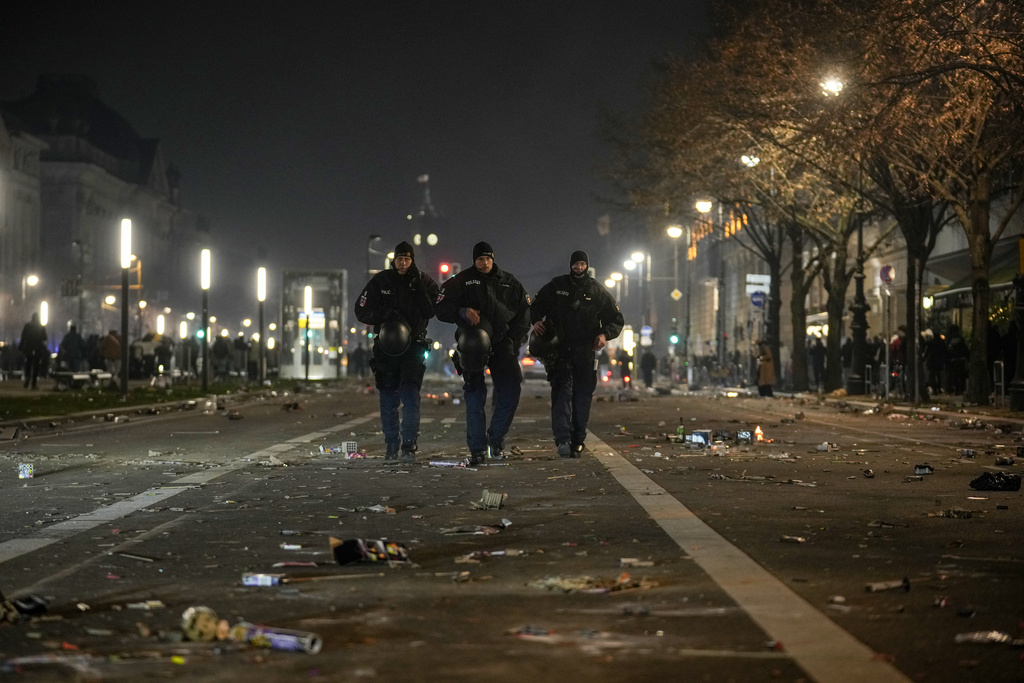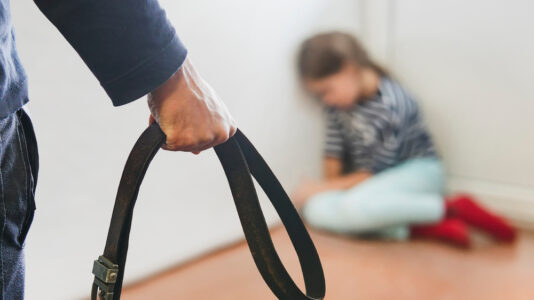Newly published data shows that nearly 40 percent of the suspects arrested in connection with Berlin’s New Year’s Eve riots do not hold a German passport, a figure significantly exceeding the city’s 24-percent foreign population.
Moreover, a recently released list of their forenames suggests that the majority of those implicated have immigrant backgrounds, underscoring concerns that the official statistics may understate the role of foreigners by not distinguishing between naturalized and German-born citizens.
The Berlin Police have updated their figures on the New Year’s Eve unrest, reporting a revised injury list of 44 police officers and a total of 1,453 recorded crimes with 670 suspects identified.
Of those suspects, 406 hold a German passport and 264 are foreign nationals — but this doesn’t tell the whole story.
Although official crime statistics count suspects as “German” if they have a German passport — regardless of whether they were naturalized — the newly released forename list published by the Nius outlet suggests a predominantly migrant background among those arrested who are officially recorded as German. According to the site, the roster includes names in the German passport-holding cohort like Abdul Kerim, Abdulhamid, Abdulkadir, Ali, Hassan, Mohammed (12 occurrences, in various spellings), and Youssuf.
Nius’ analysis of the list of forenames concluded that at least 65 percent of the German suspects “have first names that are clearly of non-German origin.”
Die Liste der Vornamen der Tatverdächtigen aus der Silvesternacht in Berlin spricht für sich… pic.twitter.com/ZCP8HYMnNZ
— Alice Weidel (@Alice_Weidel) January 7, 2025Among the foreign national suspects, Turks and Afghans are disproportionately represented. One high-profile case involves 23-year-old influencer Atallah Younes, a West Bank-born Palestinian with a Jordanian passport, who stands accused of firing a rocket into a child’s bedroom in Berlin. Younes was arrested by federal police at Berlin Brandenburg Airport on Saturday and is now in pre-trial detention on suspicion of attempted arson and attempted bodily harm.
Speaking to the Bild newspaper ahead of his arrest, Younes claimed he had only intended to celebrate the festivities, saying, “I didn’t know it was so dangerous. I went to sleep and the next day I saw that the video had 10 million views.”
Viral footage on social media captured the mayhem across the German capital, where fireworks were deployed against police and bystanders, and in some cases fired indiscriminately at residential buildings.
🔥🇩🇪WAR ZONE BERLIN 🇩🇪🔥
Germany's capital city descends into mayhem during New Year's Eve.
🧨 36 apartments uninhabitable due to massively destructive "ball" bomb explosions
🚨 400 arrests
👮 670 investigations opened
Berlin is governed by a CDU mayor. pic.twitter.com/hkLw1HCTvs
— Remix News & Views (@RMXnews) January 1, 2025State Health Senator Ina Czyborra of the Socialist Democratic Party (SPD) confirmed 23 known cases in which healthcare workers were physically or verbally attacked, labeling such incidents as “the usual level” of violence.
Members of the Alternative for Germany (AfD) party swiftly called for disclosure of the suspects’ forenames to clarify the apparent mismatch between official nationality data and actual migrant backgrounds. While the state constitutional court rejected the AfD’s request to force the government to publish this information, the leaked list from Nius has provided greater clarity on the origins of the perpetrators and fueled further debate.
JUST IN: 🇩🇪 More footage from New Year's attacks in Berlin, including police being targeted and arson attacks on vehicles.
AfD co-leader Alice Weidel said in response: "Civil war-like conditions in the usual Berlin districts: attacks with ball bombs, 15 injured officers and 390… pic.twitter.com/jjQwY0GFkK
— Remix News & Views (@RMXnews) January 2, 2025Berlin AfD parliamentary group leader Kristin Brinker criticized what she called a “sham debate” on the chaos, insisting the violence was not caused by simple celebration but by “certain, apparently immigrant groups from problem areas.” She argued the violence spotlights “the real causes of violence and lawbreaking” tied to “wrong migration policy.”
AfD co-leader Alice Weidel also weighed in, sharing the leaked name list on social media and stating that “foreign violent criminals” who endanger lives have “forfeited their right to hospitality and must be deported.” She further described the New Year’s unrest across major German cities as “civil war-like conditions” and called for stricter immigration policies and enforcement.
The violence in the German capital mirrors a broader challenge in integrating newcomers and responding to pockets of elevated crime in immigrant-heavy neighborhoods, fuelling a debate just weeks before a hotly-contested federal election in which the AfD is expected to become the second-largest party in the Bundestag, although unlikely to assume power if the cordon sanitaire imposed by Germany’s legacy parties remains intact.






